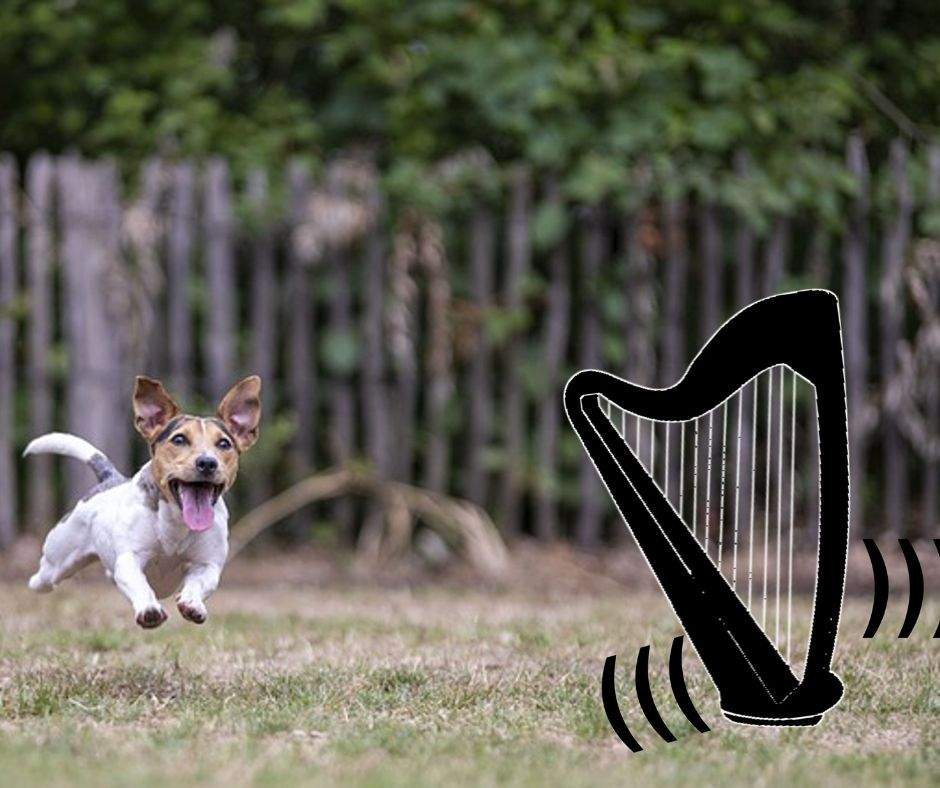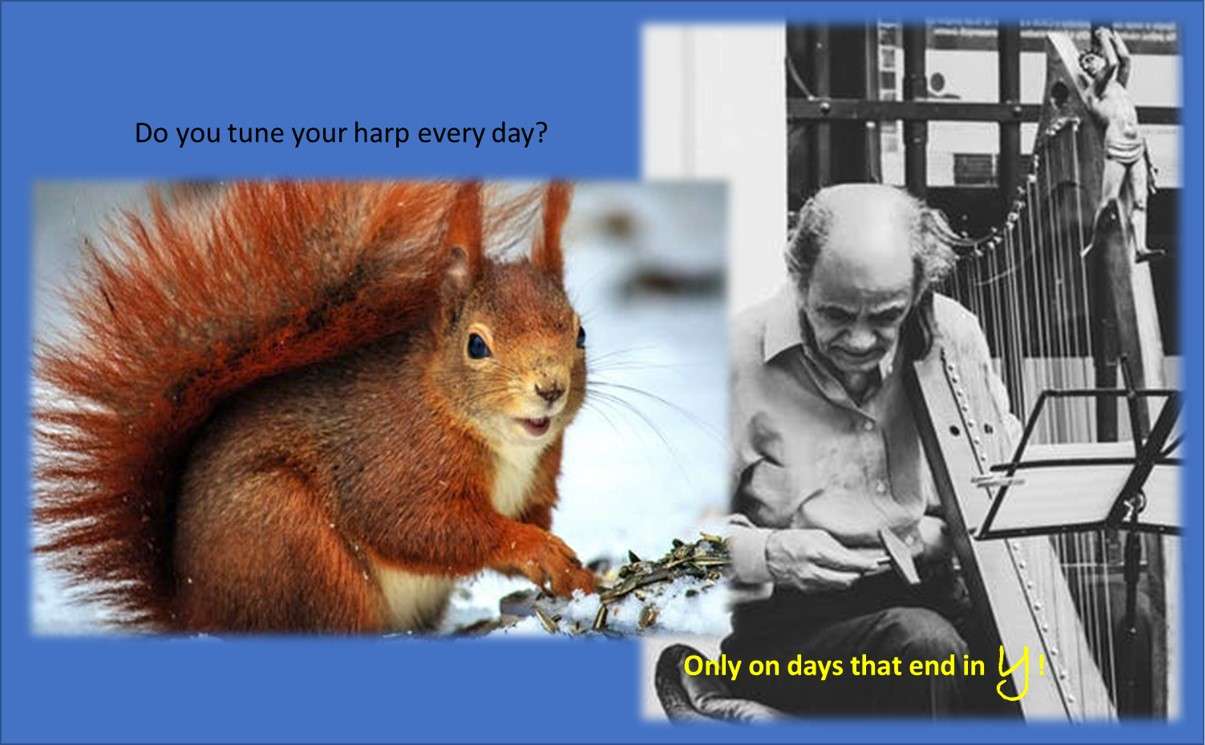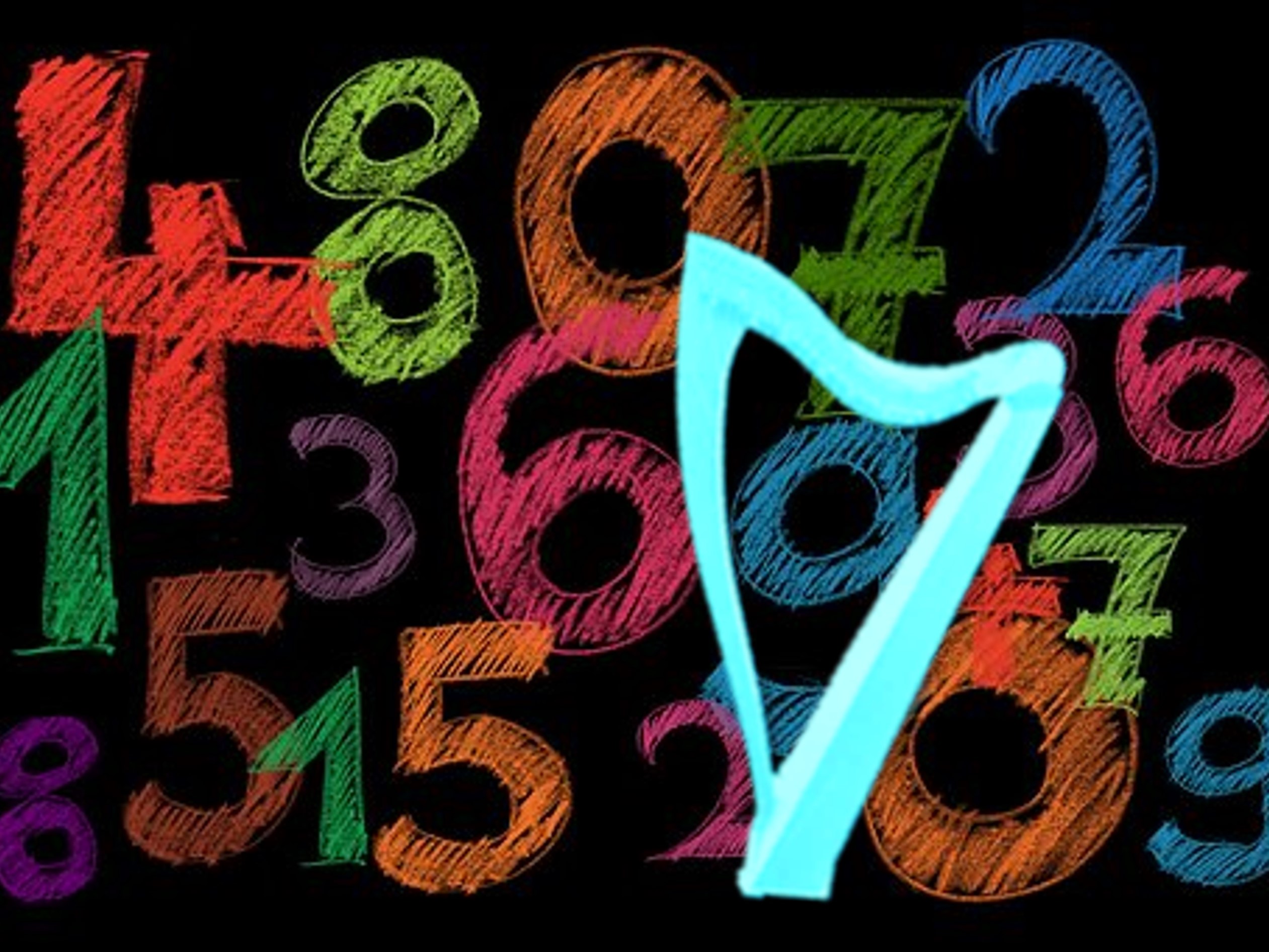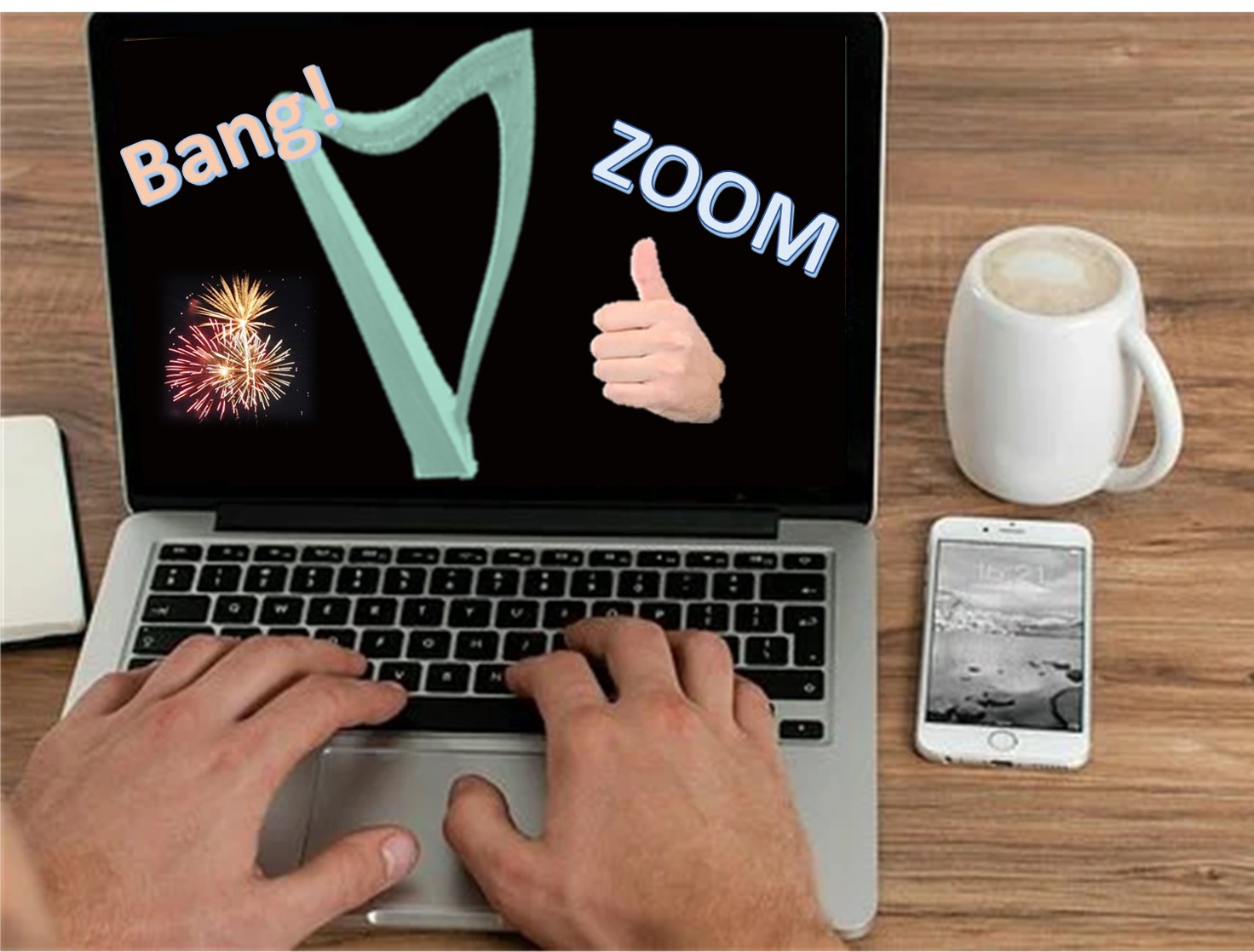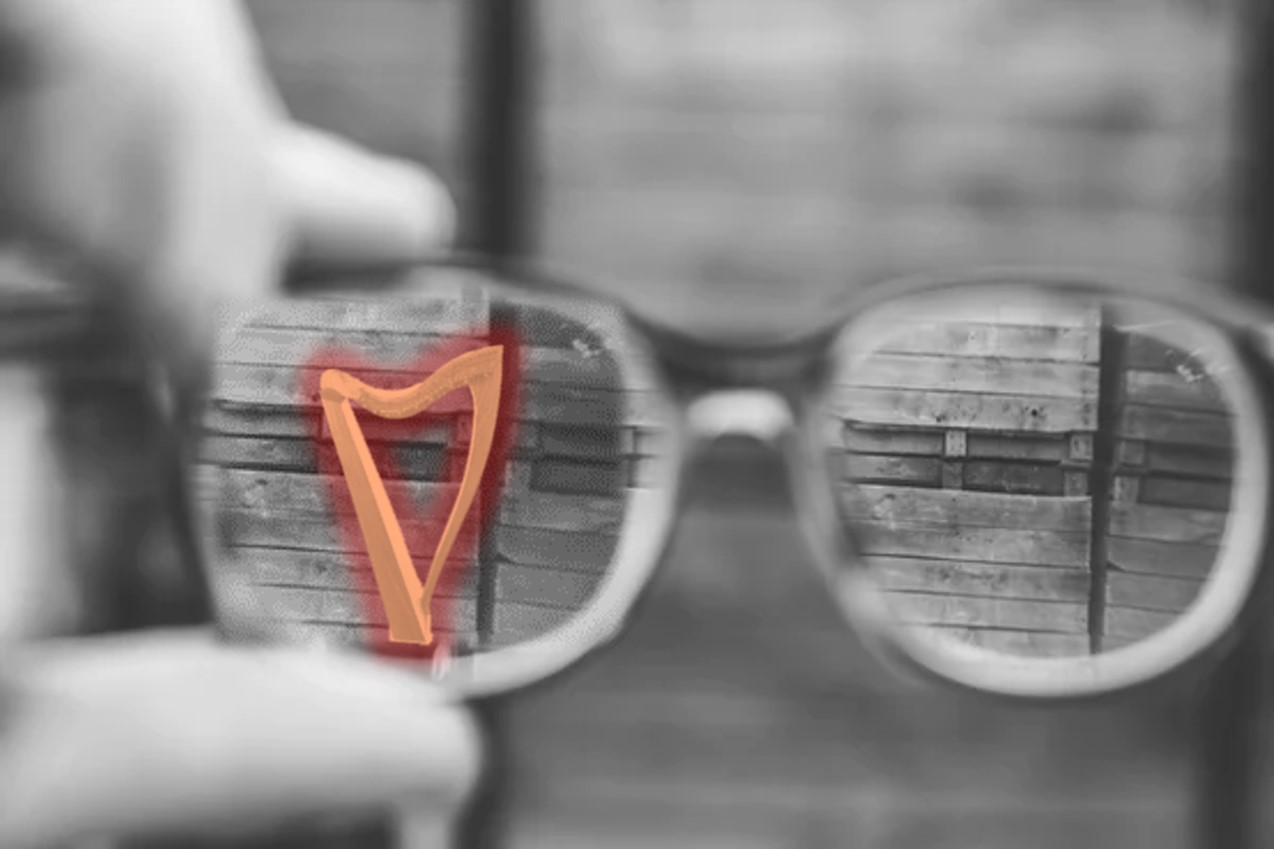I don’t know if you’ve noticed, but everyone else is getting older. Every day. Inexorably. Also, not everyone gets their jollies by carting around nearly 30 pounds of wood in a bag on their shoulder.
Oh wait.
Ok, we are all getting older, e-v-e-r-y single day and we do sort of enjoy an activity that can require us to tote around a large, unwieldy bag full of recycled tree bits. And that’s before we’ve even begun to have fun! All this moving the harp (even without the case) can require that we have good balance. Like other things we practice, with small but consistent activities we can get there.

Adding functional exercises will help you tote your harp. They will also help you carry groceries, sit and get up from the dinner table, walk across the room or on a sidewalk. They can even make sitting at your harp easier. And activities like bending to one side, grabbing a handle and shoulder strap to lift a bag of tree parts onto your shoulder, then walking some finite distance, lifting said bag into and out of a vehicle, and subsequently toting it somewhere else to bend over again to place it gently on the ground are just part of everyday life! Easy-peasy, right?
Now, before I go any farther, I must reiterate that I am not that kind of doctor, and you should speak to your physician before embarking on any exercise or fitness regimen. Everything I say is a suggestion or just an idea. Functional exercises are a physical practice and require strength, flexibility, and balance to build greater strength, flexibility, and balance. Consult with a healthcare professional before starting any new fitness programs, especially anything I suggest. If you have any injuries, health conditions, or other physical limitations, it is important that you remember that you must take care of yourself, especially before trying any new or modified exercises. The information provided on this website is not intended to be a substitute for professional medical advice, diagnosis, or treatment. Always seek the advice of your physician or other qualified healthcare professionals with any questions you may have regarding a medical condition. Reading this blog, or trying anything I suggest, involves risks and your results may vary.
Now, back to the point at hand. Working a few functional exercises into your everyday routine can help you continue to be able to carry your harp (or lift it onto the harp cart) for a long time to come by helping to ensure you have the balance needed to successfully bend over, lift, carry your harp without falling over! Here are three functional exercises that can move you toward improved balance:
- Stand on one foot. No, I am not kidding. Can you do it for 10 – 15 seconds? Longer? If you are at all wobbly (or if you’re just smart), do this behind a chair or at your kitchen counter to catch yourself in case you lose your balance. If you can easily do 15 seconds, can you do 30? The longer the better. When you’re feeling big and bad and hard to diaper, try it with your eyes closed (definitely have the chair for this!). It’s important to be able to stand on one foot – you spend half the time you’re walking in that position! This also strengthens your feet which do most of the work keeping you balanced.
- Undecideds (sit to stand). You might think it’s easy to sit down or to stand up from a chair (or you might not). You know how to do this. Use a straight chair (like a dining room chair or your harp bench). Stand in front of it and sit down, now stand up. And again, nine more times (like you can’t decide to sit or to stand!). While you’re doing these, try to remain upright (don’t bend over and hurl yourself onto the seat and similarly, don’t push off the table or make loud groaning noises!). If you’re not used to doing these, do them in a chair with arms because while one might be easy, ten will sneak up on you! (you can also use your legs to push off if you don’t have a chair with arms). Strengthening your legs helps in nearly everything you do. (PS if this isn’t enough, move to squats – same idea just no chair to fall into).
- Teapots (side bending). I haven’t ever seen anyone pick up their harp case from the floor who didn’t add a sideways bend (like “I’m a Little Tea Pot”) and worse, many of us not only bend sideways, we also bend forward at the same time – which is just begging to topple – head over tea kettle as they say. For this, sit upright in that chair we just finished not flopping onto with your arms hanging along your sides. Bend to reach to the floor on one side, come back to the middle and reach for the other side. Keep yourself upright, no slouching or slumping. If you can’t reach the floor no worries, you know it’s there and it gives you something to strive for. Don’t forget to breathe.
Do each of these exercises about ten times each then repeat the sequence two more times. Like all our practice, it’s about slow, careful progress not speed or overdoing it. Take it easy, build up, and enjoy the process. And, like harp technique books, there are loads of additional activities you can add to help you improve your balance. These are just a few that are easy enough to bring in to any practice session to make moving your recycled trees a bit easier over time.
What do you do to improve your balance? Do you have a different functional exercise to share? I’m always looking for some and you know I love to hear from you – leave me a comment!
